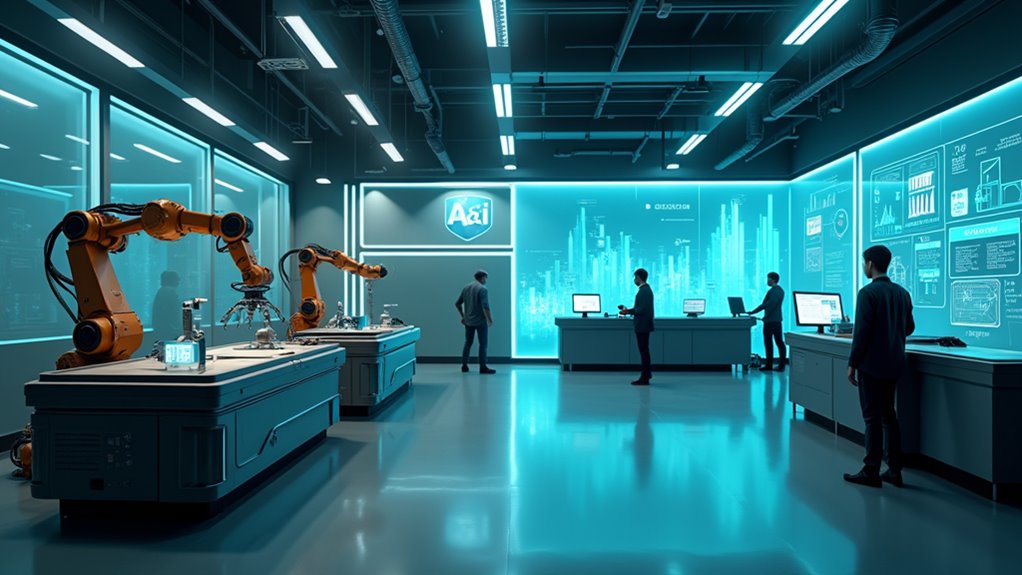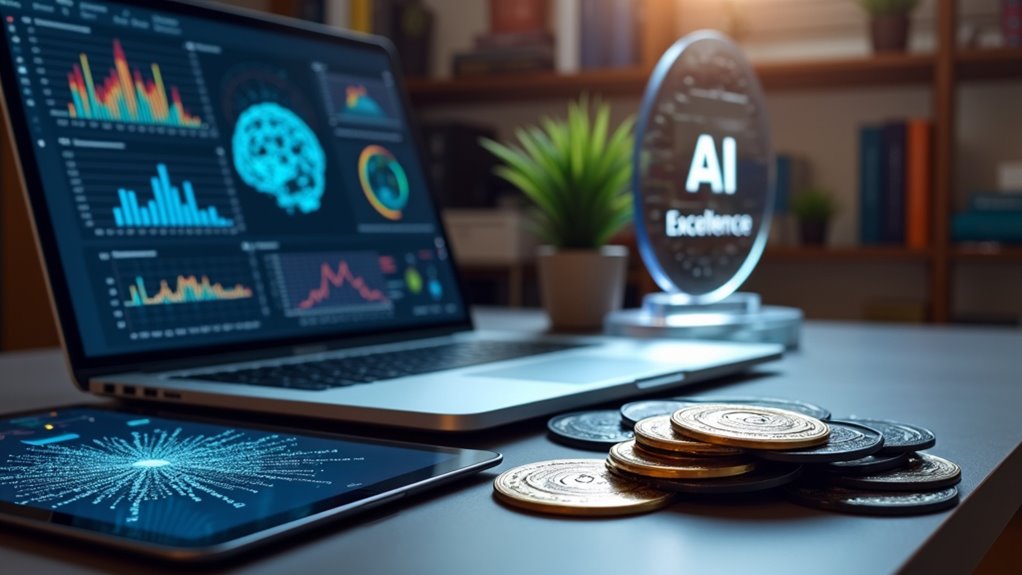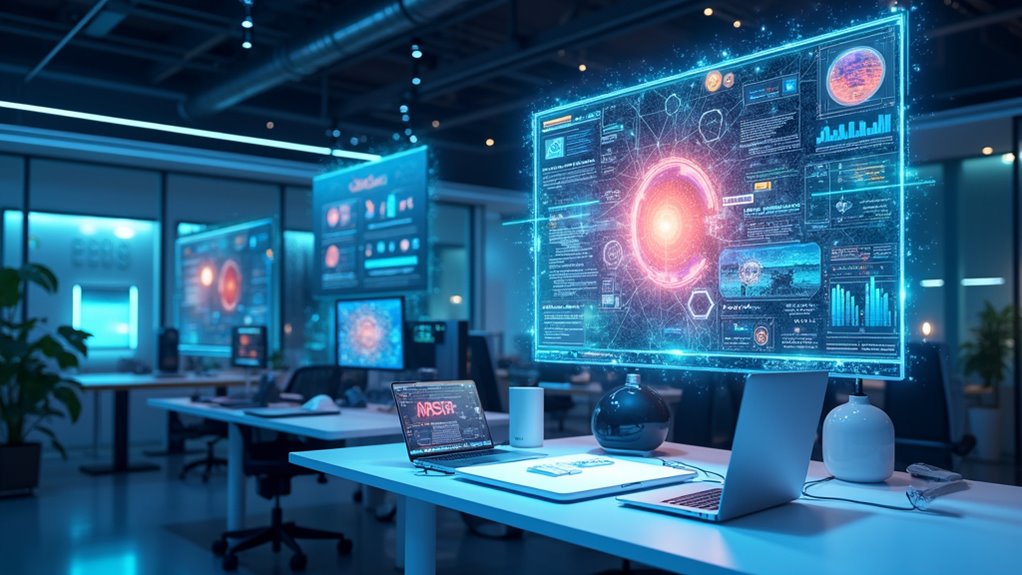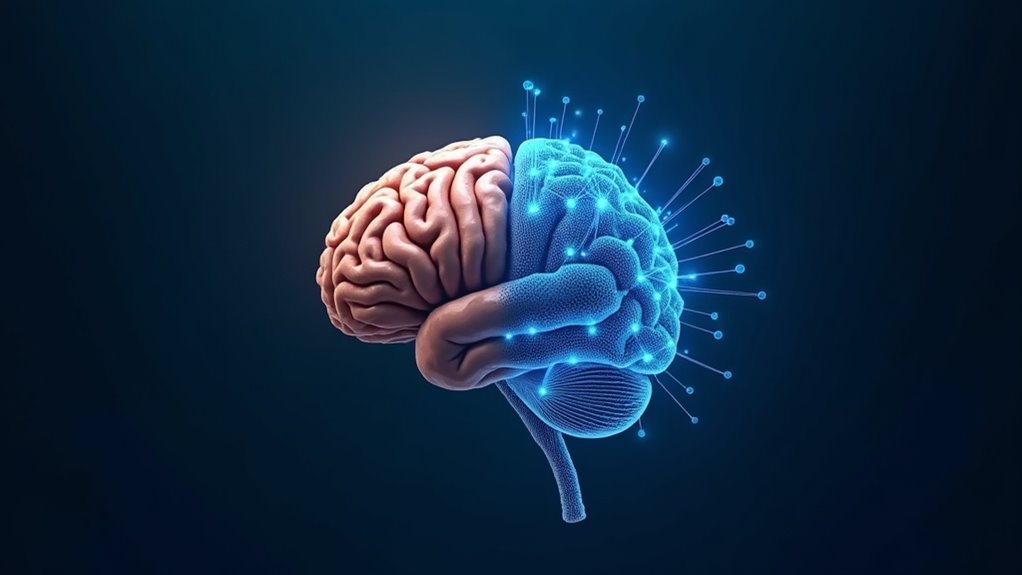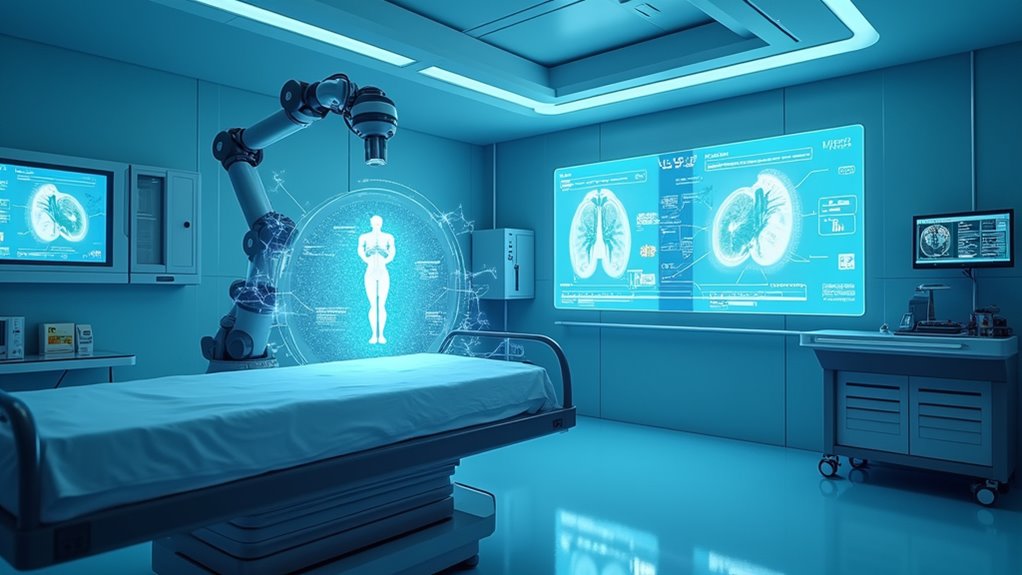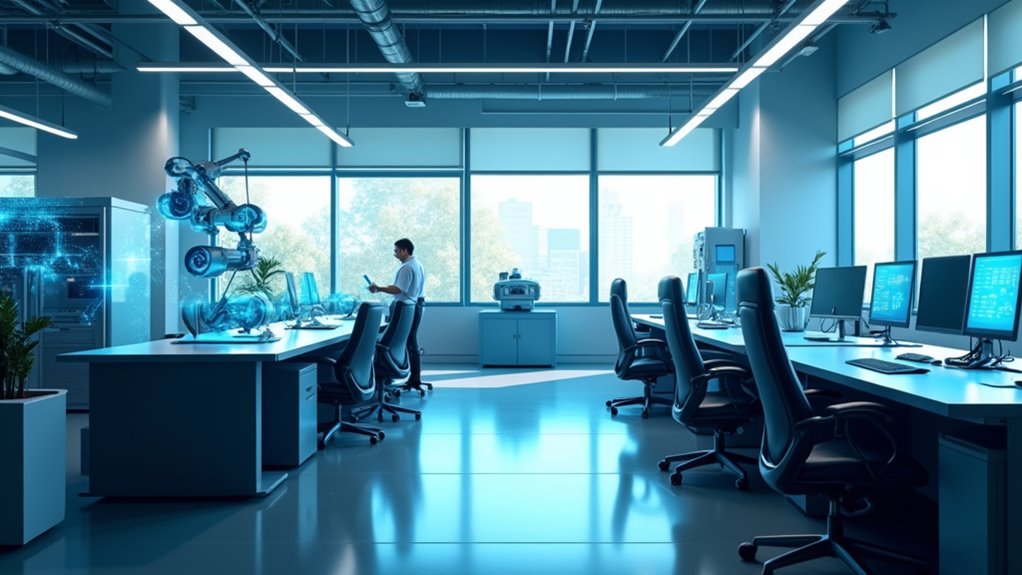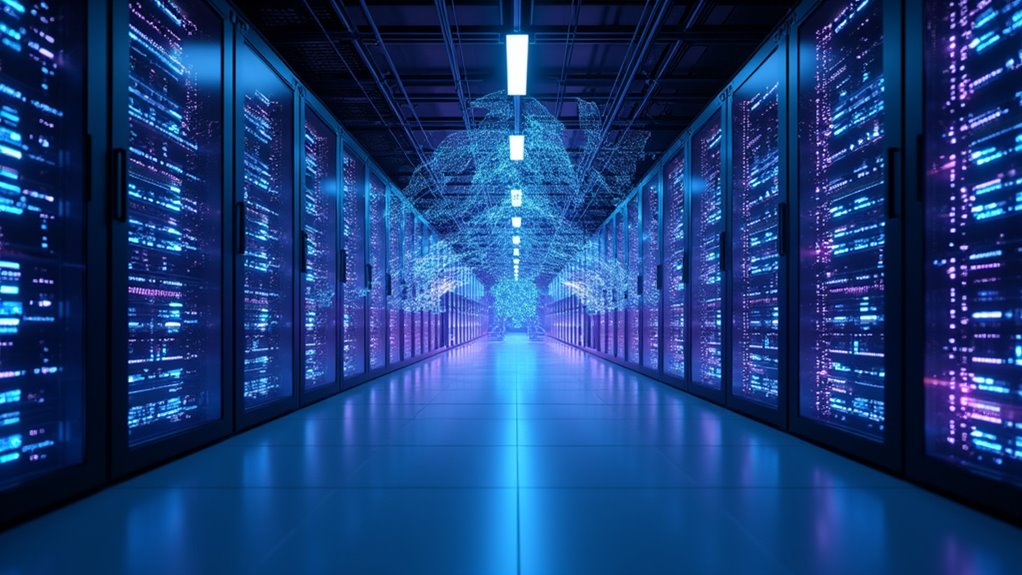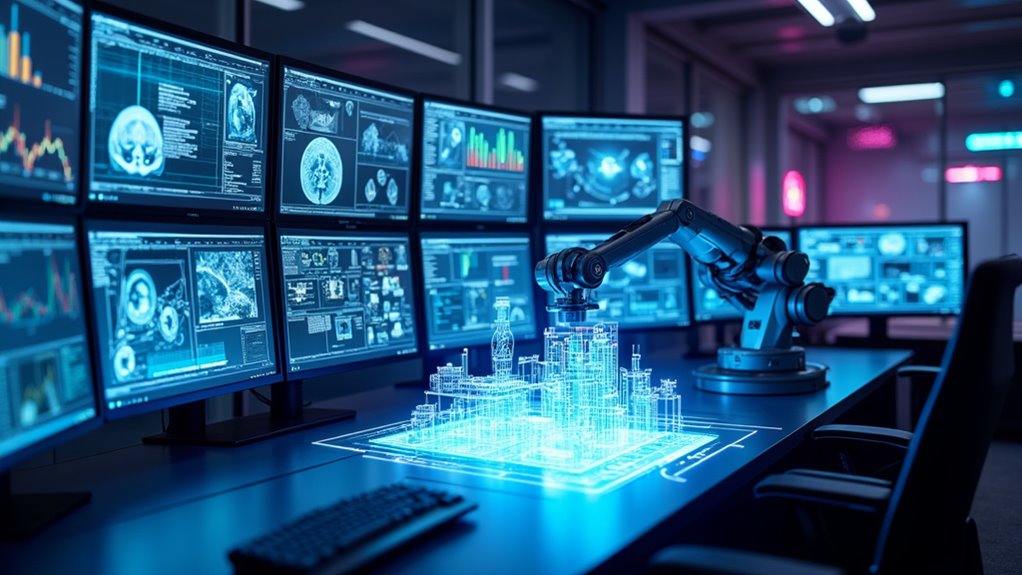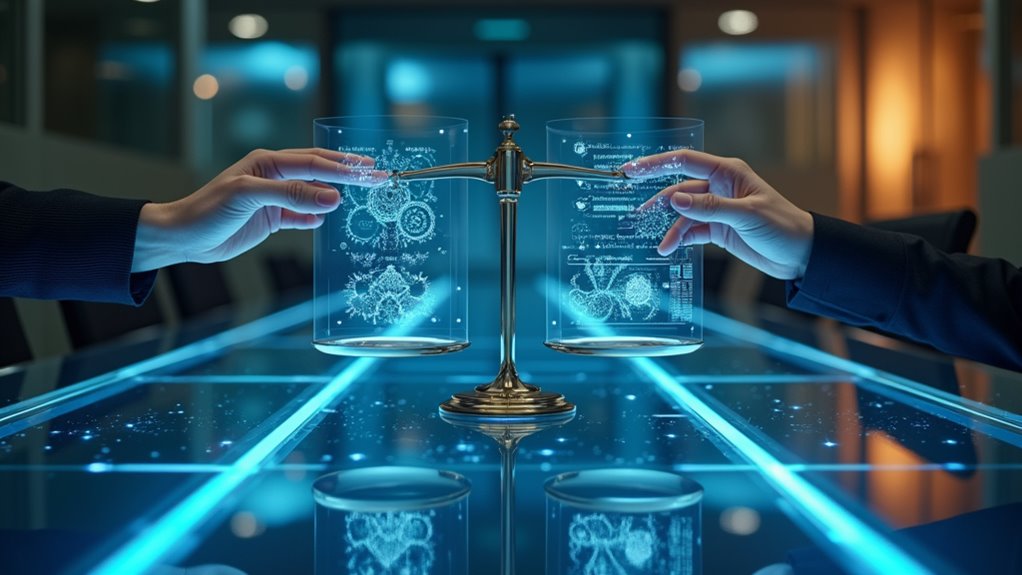AI will transform jobs dramatically by 2030, creating 170 million new positions while threatening 92 million existing ones. Every industry faces upheaval—robots in manufacturing, chatbots replacing customer service reps, and healthcare pros getting AI sidekicks. The skills you have today? About 39% will be obsolete by 2030. Don’t panic, but don’t snooze either. Success hinges on continuous learning and adaptation as the economic landscape shifts beneath your feet.
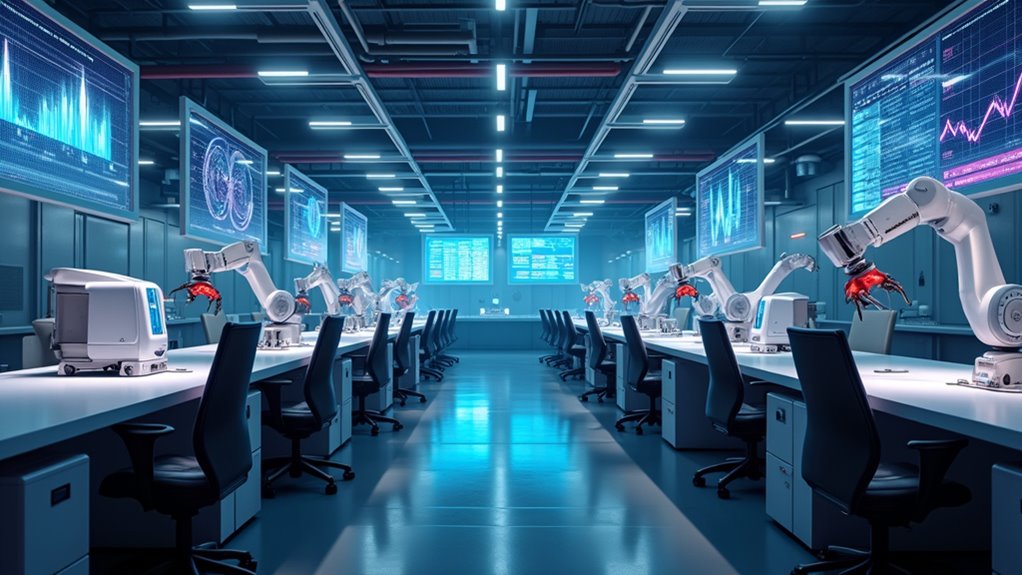
Artificial intelligence is reshaping the global workforce at breakneck speed, creating winners and losers across every industry. By 2030, the job landscape will undergo dramatic job evolution, with AI expected to generate 170 million new positions globally while simultaneously threatening 92 million existing roles. Yes, that’s a net gain—but workforce adaptation won’t be smooth for everyone. Workers must prepare for this shift now, not tomorrow.
The manufacturing floor, once bustling with human workers, is increasingly populated by tireless robots handling repetitive tasks. Meanwhile, healthcare professionals find themselves augmented—not replaced—by AI that lets less specialized staff perform what once required experts. Customer service? Those cheerful chatbots aren’t just placeholders; they’re permanent replacements for thousands of human agents.
Want to stay relevant? Better start learning. A whopping 39% of today’s skills will be obsolete between 2025 and 2030. This isn’t just another tech fad—it’s an employment extinction event for the unprepared. Smart employers know this, with 85% planning aggressive upskilling initiatives. The question isn’t if your job will change, but how dramatically. The most effective approach is focusing on continuous learning rather than viewing education as a one-time preparation for career longevity.
New opportunities are emerging for those who pivot effectively. Data analysts will thrive as organizations drown in information needing human interpretation. Software developers creating AI tools won’t ironically find themselves replaced by them. Green economy roles and healthcare positions will multiply, especially in aging societies where human touch remains irreplaceable. Climate change mitigation has emerged as the third most transformative trend affecting employment, with nearly half of employers expecting significant impact by 2030.
These changes raise serious ethical questions. Who monitors AI bias in hiring? What happens to privacy when algorithms track productivity? Economic inequality could worsen if technological benefits flow primarily to those already advantaged. Governments must strengthen social safety nets before disruption peaks. According to International Monetary Fund estimates, 40% of jobs worldwide will be affected by artificial intelligence, with advanced economies facing even greater impact.
The economic upside is substantial—AI could boost global GDP by 16% through enhanced productivity and innovation. But this prosperity won’t distribute itself equitably. The future belongs to those who recognize AI’s transformative power and adapt accordingly. Your career depends on it.
Frequently Asked Questions
Will AI Eliminate More Jobs Than It Creates?
While job displacement from AI is real, the data tells a complicated story.
Despite automation anxiety, projections suggest AI will create 170 million jobs while eliminating 92 million by 2030—a net positive of 78 million positions.
What’s happening isn’t simple subtraction; it’s transformation.
Yes, data entry clerks will vanish, but AI ethicists and machine learning specialists will thrive.
The challenge isn’t if jobs will exist, but whether workers can adapt to them.
How Can Workers Prepare for Ai-Driven Career Changes?
Workers can prepare for AI-driven career changes through strategic upskilling initiatives and adaptability strategies.
First, identify which skills in your field will remain valuable alongside AI. Then, pursue targeted training in complementary technologies—don’t just panic and learn random coding languages!
Cross-disciplinary knowledge is gold. Smart professionals are joining industry forums, taking micro-credentials, and experimenting with AI tools directly.
Which Industries Will Remain Relatively Immune to AI Disruption?
Industries that demand high emotional intelligence and physical dexterity will likely withstand AI disruption.
Healthcare services requiring human touch and empathy—think nurses and therapists—can’t be replaced by algorithms, no matter how smart they get.
Creative professions also maintain immunity, as AI can’t replicate authentic human experiences or genuine artistic vision.
Skilled trades requiring physical manipulation in unpredictable environments remain safe too.
What New Job Categories Will Emerge From AI Advancements?
AI advancements will spawn several new job categories by 2030.
AI Ethics specialists will guarantee systems operate fairly and transparently. Data Stewardship professionals will manage information integrity and compliance.
Other emerging roles include AI trainers, explainers who interpret complex outputs, and sustainers maintaining ethical frameworks.
Healthcare will see AI-assisted diagnosticians, while education develops AI curriculum specialists.
How Will Workplace Culture Change With Increased AI Integration?
Workplace culture will undergo a seismic shift as AI becomes the office busybody.
Remote collaboration tools will evolve beyond awkward Zoom calls into immersive experiences that actually work.
Companies must tackle ethical considerations head-on—who’s accountable when AI makes decisions?
The traditional 9-5 will become as outdated as fax machines, replaced by fluid schedules built around human creativity.
Expect less drudgery, more strategic thinking, and the peculiar challenge of maintaining humanity in increasingly digital workplaces.
